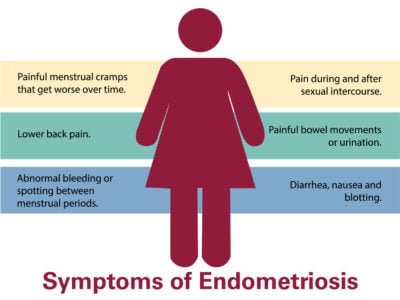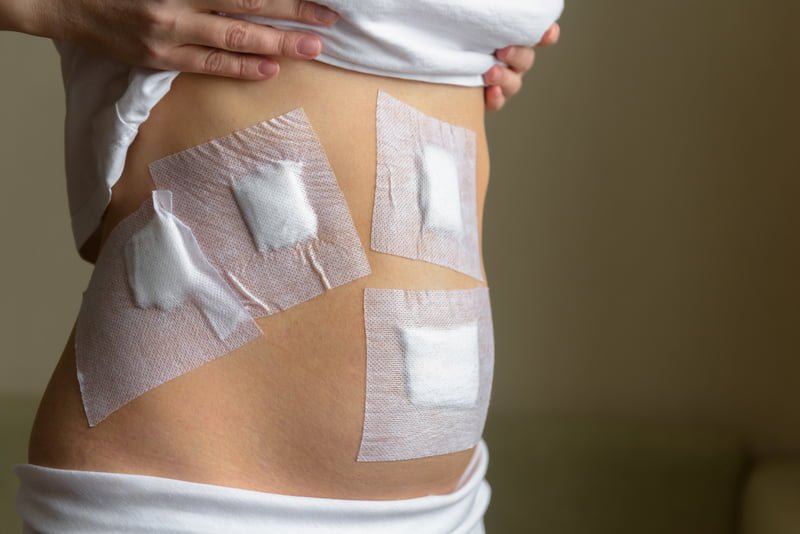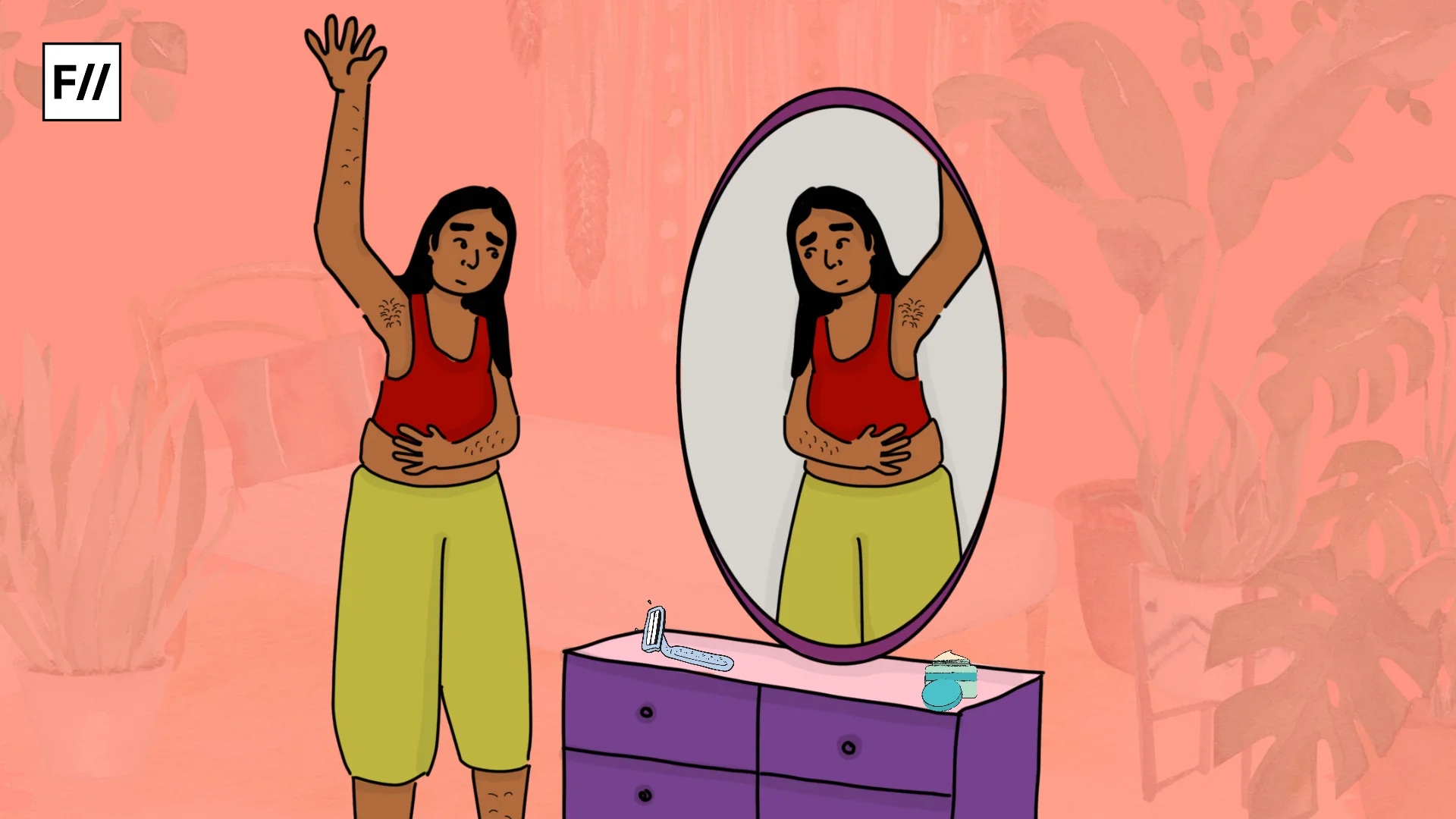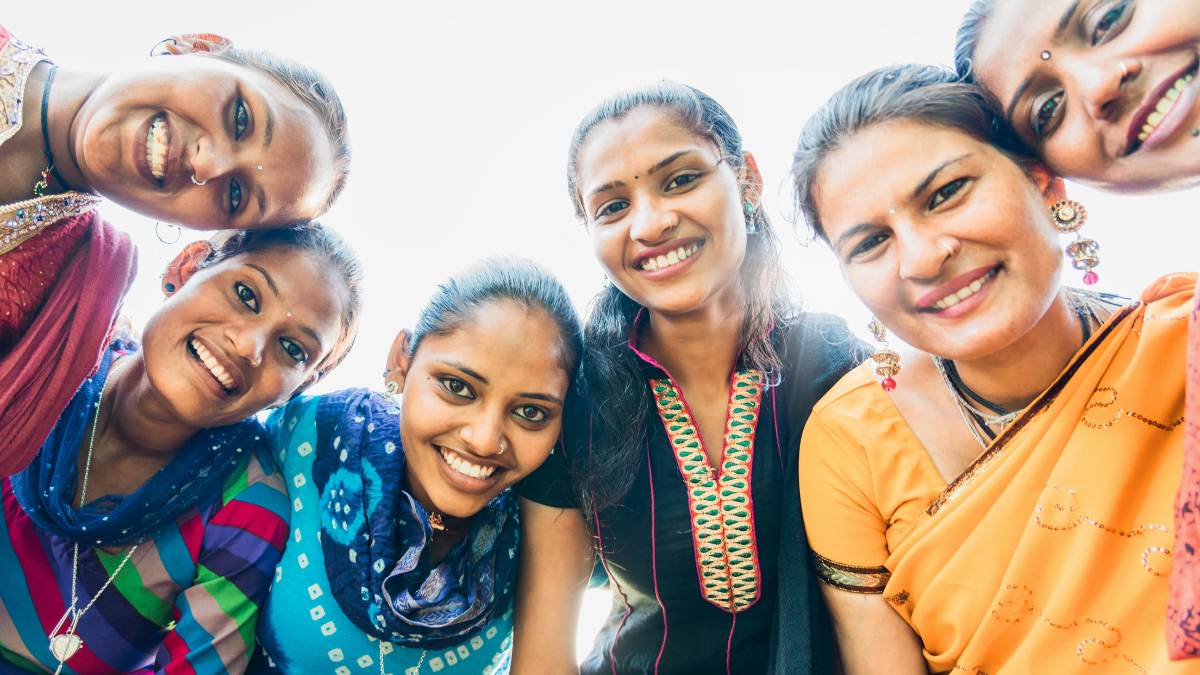Editor’s Note: This month, that is November 2020, FII’s #MoodOfTheMonth is Sexual And Reproductive Health, where we invite various articles to highlight how health outcomes are determined with respect to a person’s social, political, economic and cultural contexts of their gender and sexuality, and how these identities shape their life experiences vis-a-vis SRHR in India. If you’d like to share your article, email us at pragya@feminisminindia.com.
Endometriosis is a chronic disease of people with a uterus. It is extremely difficult to treat because its exact cause is unknown to medical science. This often painful condition affects 1 in 10 menstruating people. I am that one person! Endometriosis is discussed in a hushed manner, behind closed doors, hence it is unknown to many. I received my diagnosis only a few months ago.
For long, I thought that all that I was experiencing was pretty normal. After my diagnosis, I felt quite alone because I didn’t have anyone with whom I could talk to about what I was going through. So, I started researching and reading as much as I could. I hope whatever I share henceforth proves helpful to whosoever is going through a similar situation.
The Path To Diagnosis
It was May 2018 and two days later my end semester exams were to commence. A sudden, horrendous, sharp-shooting pain began in my lower left abdomen. It was the second day of my periods so I chalked it down to severe menstrual cramps. But, when the pain did not subside, I was taken to the nearest hospital where I was administered Voveran injections. The doctor in the emergency room, without any tests or ultrasound reports, concluded within two minutes that my appendix was about to burst. Call it intuition or a good judgement, I refused to take any treatment in absence of my parents who were back in my hometown. After weeks of blood tests, several visits to gynaecologists, and ultrasounds, I was diagonsed with PCOS. I was told that a good diet and healthy lifestyle will curb the symptoms.
Also read: Video: Why Understanding Polycystic Ovarian Syndrome Is Important
Though I had suffered pain of similar intensity before, as a teenager, the doctors always told me that it happened either due to constipation or other stomach related illnesses. PCOS really came as a shock to me. My parents and gynaecologist decided amongst themselves that I did not need to know why my CA-125 level was so high. All I could get from the internet was that I had cancer (turned out to be false, fortunately). I was stressed and inconsolable because all the online reading showcased that motherhood was reduced to a mere possibility, rather than certainty, for me. The lack of concrete information from doctors put a severe dent in my mental and physical well-being.

However, I decided to get better and began my journey of health. It was 2019, I was still gaining weight, felt lethargic and sad with severe mood swings, but at least my pain was mitigated. Fast forward to June 2020. The landline rang and with every word that I spoke over the receiver, my knees bent a little to adjust to the sudden, horrendous, sharp-shooting pain in my lower left abdomen. In a matter of few seconds, I went from standing to crouching to being curled-up on the floor. I felt pukish; I was shivering with cold; I was unable to move a hand or even speak.
My acute pain was dismissed for seven years before I received a proper diagnosis. Many doctors themselves are hesitant to suggest or believe that a condition like endometriosis can be affecting someone.
Five hours, two pills and one injection later, the pain subsided. I went to see a radiologist. The preliminary ultrasound report confirmed an endometriotic cyst which had to be removed surgically. After further consultations and tests, a laparoscopic procedure was scheduled.
3 months have passed since the surgical process, CA-125 is normal, and my hormones are bothering me in just the usual way. I’ve recovered and adopted severe lifestyle changes. Sporadic light work-out throughout the day with a strict low-carb diet is proving helpful, so far. Endometriosis has helped me love my body a little more.
I feel that every woman should undergo yearly check-ups even if you aren’t facing any physically demonstrable issues. Further, people who are suffering with endometriosis should know that it can affect you whether you are 17 or 40. Do not let it hamper your life plans.
Challenges In The Journey
The primary challenge were my thoughts. It was difficult to get used to the idea that I might not get to experience motherhood the way women around me, my mother and grandmother have. The little bit of patriarchy which was deep-seated in my mind damaged my self-worth. Eventually, I managed to elevate my self-esteem through extensive reading and self-interpretation of Sara Ruddick’s concept of ‘maternal thinking’. It even inspired me to write my master’s dissertation covering similar aspects under Feminist Aesthetics.

A more significant challenge was to address this issue for my parents. Even before entering the operation theater, I was calming them instead of they calming me. The generation gap extenuated the issue. For them, like all parents I assume, even thinking of a future with no child of your own is near impossibility. The pressure of getting married early to increase the chances of conceiving has doubled.
Adding to this conundrum is the gossipy nature of ‘aunties’ who have been poking their noses around my medical condition to spread rumours. They have been shut down with ambiguous replies but, this has really hampered my mental well-being. I know there are people around me suffering with similar issues, but I cannot connect with them because people like us have to keep our identity hidden, lest others start thinking that endometriosis marks the end of our lives.
Suggestions I Have
My acute pain was dismissed for seven years before I received a proper diagnosis. Many doctors themselves are hesitant to suggest or believe that a condition like endometriosis can be affecting someone. There is too much to read online and unfortunately everything I’ve come across suggests that the patient is suffering from cancer!
Also read: How My Gynaecologists Dismissed My Pain | #MyGynaecStory
We dismiss our sexual and reproductive health very easily, either owing to taboos or due to inaccessibility. I feel that every woman should undergo yearly check-ups even if you aren’t facing any physically demonstrable issues. Further, people who are suffering with endometriosis should know that it can affect you whether you are 17 or 40. Do not let it hamper your life plans. Practice Yogasanas and light workout to get rid of bloating. Heavy workouts only tire you out and increase physical stress.
Most importantly, find someone you can talk to about this condition. Even though late in my journey, I’ve found a virtual support group, and I know of positive experiences of women who have conceived despite their medical condition. In my experience, intensive self-care—both mental and physical, is the way through this recurring medical condition.
Featured Image Source: Endometriosis.net





You are a fighter, girl.
Thank you!
Inspiring. Going through similar situation. Really helpful article.
Glad to help!